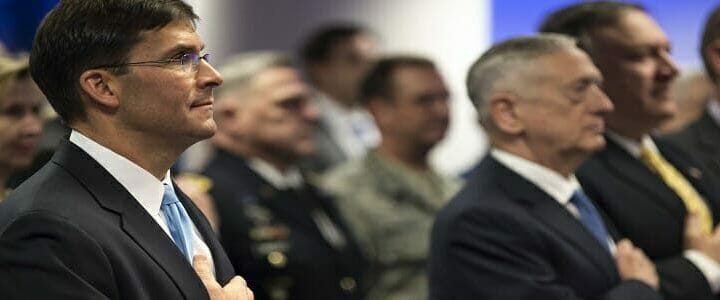The White House’s decisions to pull out of Syria and Afghanistan continue to ripple through the administration. On Thursday, Secretary of Defense James Mattis announced he’d be leaving in February. On Friday, Brett McGurk, special presidential envoy for the global coalition to counter ISIS, announced his own resignation. McGurk was already planning to leave in February, but accelerated his departure.
Sunday morning, the president announced that he would replace Mattis with Deputy Secretary of Defense Patrick Shanahan on January 1.
The importance of alliances
From Russia to Venezuela to the Gulf region, the president’s national security advisers have managed to craft policies that advance American interests despite the spontaneous utterances emanating from the White House.
The latest case-in-point is the Army Campaign Plan, the annual roadmap for the steps the Army will take to implement the Army Strategy. This year’s ACP, still circulating in draft form in the Pentagon, emphasizes the need for the Army to strengthen the nation’s overseas alliances and partnerships to preserve the post-World War II international order. The White House may openly question the value of our membership in the North Atlantic Treaty Organization and similar alliances, but those working on his national security team do not.
That is the message that Mattis and McGurk are trying to send. For his part, Mattis was blunt: “We must do everything possible to advance an international order that is most conducive to our security, prosperity and values, and we are strengthened in this effort by the solidarity of our alliances.”
Some think he’s echoing Washington, who said in his farewell address, “It is our true policy to steer clear of permanent alliance with any portion of the foreign world,” and Jefferson, who in his inaugural address pledged, “Peace, commerce, and honest friendship with all nations—entangling alliances with none.”
These ideas were somewhat codified by the Monroe Doctrine, which essentially promised Europe that the U.S. would stay out of European affairs if European governments stayed out of the Western Hemisphere. That philosophy began to erode with Roosevelt’s Great White Fleet, the flotilla of 16 battleships that circumnavigated the globe between December 1907 and February 1909. It was further weakened with our entry into the First World War, and died with our victory in the Second.
Our military alliances make our economic alliances possible, and the combined military might of the U.S. and our allies constrains the ambitions of many other nations, including those considered to be “malign actors.” They are not a burden to be borne begrudgingly. They are not a contest to see who pays more in terms of either blood or treasure. They are a blessing to American prosperity.
What’s next for the Pentagon?
I do not believe that Shanahan will be Mattis’s permanent replacement. His background as a lifelong defense industry executive makes him well suited to be the deputy secretary, essentially the pentagon’s chief operating officer. And while whoever comes next will be a pale imitation of the inspiration that Mattis is to the troops, I don’t see Shanahan inspiring anyone. Call me old fashioned, but I prefer my secretary of defense to have at least some time in uniform, even if it was one term of enlistment. As MacArthur said in his farewell address at West Point in 1962, “the soldier above all other people prays for peace, for he must suffer and bear the deepest wounds and scars of war.”
A first-hand knowledge of how national defense decisions will affect the men and women charged with executing them is an important point of view. Mattis’ resignation is a loss for the national security establishment and the country as a whole. I would say I hope that is where the losses stop, but as we all know, hope is not a strategy.




